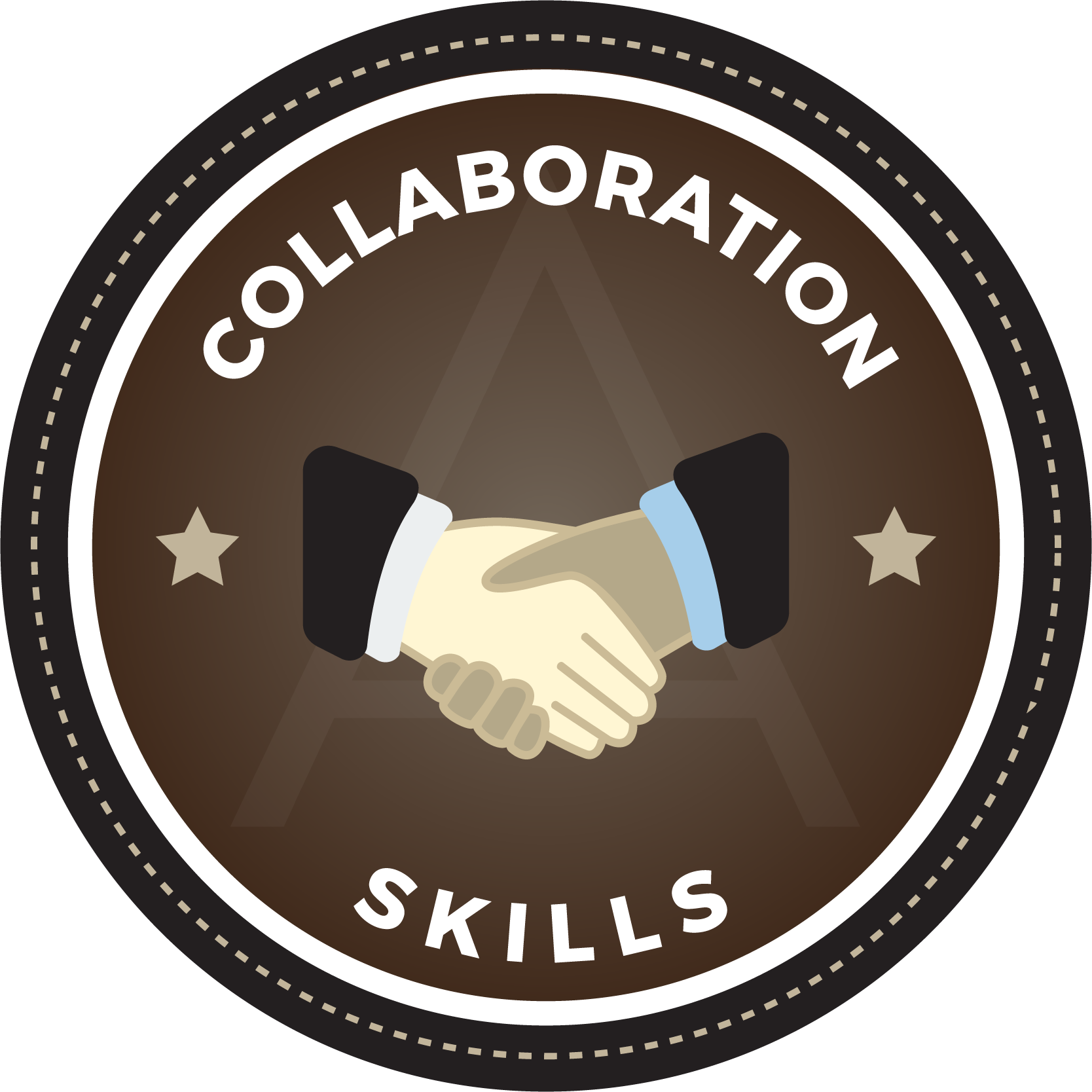How to Demonstrate Collaboration Skills on Casper®

About Collaboration
When you think about collaboration, you probably think of working in a group or being on a team with other people. This is true! But to have excellent collaboration skills, there are many related competencies you must also master.
Collaboration as a Skill: What Does That Really Mean?
You must be able to establish and maintain positive relationships with others, whether at work, in school, in a volunteer capacity, within team sports, within your family, or otherwise. You must be able to work effectively with others to achieve goals; this includes respectful and fair shared decision-making and being able to negotiate overlapping responsibilities.
Consensus building is a process of ensuring that everyone’s perspectives have been heard, considered, and then taking the initiative to reach a decision. A leader who is an effective collaborator will make each member of the team feel respected and valued for their contribution.
You should actively promote understanding in a collaborative setting and manage differences to prevent conflicts; when they do occur, you must also resolve conflicts in a way which fosters and maintains a positive group culture. To be an expert collaborator, you need to be involved in promoting, managing and resolving—it is not enough to just passively participate in a positive group culture.
Collaboration intersects with communication in a group setting, particularly when ensuring responsibilities are distributed in a group, or transferred between parties. Your verbal and written communication should ensure all members of a team are informed.
Collaboration in a Professional Setting
In order to better understand how to perform well on collaboration metrics on Casper, it is helpful to understand why this is being measured in the first place.
Why are medical schools and other health professions programs so interested in selecting applicants with excellent collaboration skills?
Let's look at an example in a professional context for some insight. Below, we’ll share a story an example of expert collaboration at a hospital geriatric ward.
Esti had just turned 85, and she lived at home alone until her fall last week. She had tripped while waking up to use the bathroom, fortunately not breaking any bones, but had been unable to get back up without assistance. Esti wasn’t discovered by her daughter until the next morning. Her daughter called an ambulance and Esti had been in the hospital since.
Esti had physically recovered and wanted to go home, but her family was concerned that she would fall again. The pharmacist and the physical therapist (PT) on the geriatric ward believed that Esti couldn’t manage her medications and her balance wasn’t strong enough for her to go home, recommending she be listed for long term care. The occupational therapist (OT) and Esti’s registered nurse (RN) strongly disagreed, arguing that she had improved enough over the past week to go back home. The communication between the different team members had been occurring almost exclusively in the patient’s written chart, as they were on the ward at different times of day.
“I think it would be a good idea for us to schedule a care conference,” the ward’s attending physician, Dr. Chu, stated. “That way we can bring in the family, along with our interdisciplinary team to discuss our options and form a plan with Esti.”
The care conference was scheduled and Esti, her family, and the interdisciplinary healthcare team were seated around a table. “Thank you for making the time for this meeting,” Dr. Chu began. “I would like for us to discuss Esti’s progress in hospital and our concerns regarding where Esti will go after she is discharged. Who would like to start?”
Everyone had a chance to explain their opinions and feelings regarding Esti’s disposition. After discussion, a decision regarding a shared plan was reached. Dr. Chu summarized, “Esti will be sent home after one week of rehabilitation, with a home care aide visiting twice a day to administer medication and check on Esti. We will arrange for a walker for Esti’s balance, and Esti has agreed to tour several senior’s homes with her family and consider being added to a waiting list.”
Everyone nodded, and Esti shared a smile with Dr. Chu.
***
Expert collaboration can make the difference between a tense and divided care team and a comfortable and cohesive care team. It also leads to better outcomes for the patient, as we’ve seen with Esti. When all perspectives are considered, an optimal solution can be reached—which is highly important in today’s complex medical system.
Given this example, you can understand why medical schools and other health professions programs are so interested in choosing applicants with excellent collaboration skills.
So How Does Casper Evaluate You on this Skill?
Casper poses common scenarios and reflective questions aimed to determine if you possess the People Skills that you will eventually require to be a successful professional. Start Practicing
Are you READY for Casper?
We prepare candidates for Casper with practice questions, strategies to improve critical thinking skills, scoring on our simulated tests, and one-on-one coaching sessions to maximize performance on Casper. Let's get you ready!
Simulated Casper Tests
Challenge your Casper skills with 4 difficult Simulated Casper Tests (Levels 1-4). Start at Level 1 and increase the level of difficulty!
Starting at $27 Go to Simulated TestsSimulated Prep Courses
Learn strategies for answering difficult Casper questions and convert beginner to advanced answers.
Bundles with Coaching
Fast-track your skills with our bundles (simulations and courses with scoring and coaching add-ons) to identify weak areas.
Starting at $197 Go to our Bundles